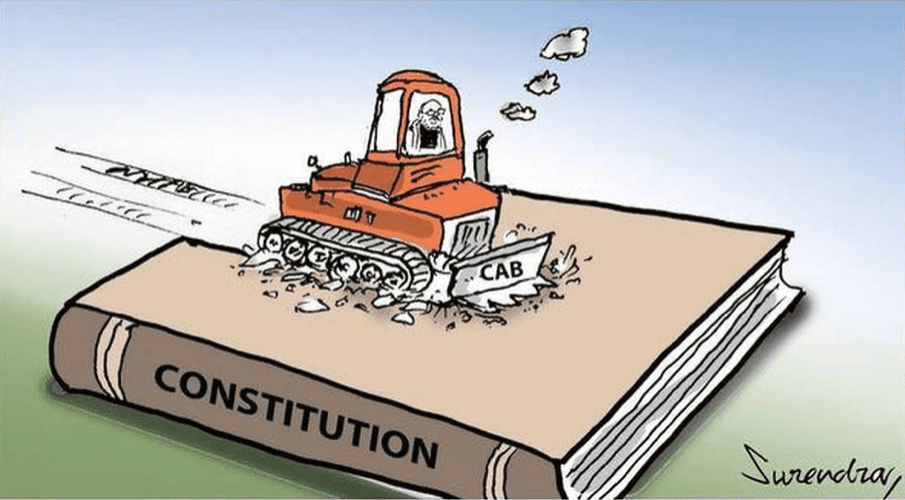BY NYLA ALI KHAN
 The federal government of India has yet to realize its obligations toward minorities.
The federal government of India has yet to realize its obligations toward minorities.
India’s progress will be greatly hindered unless the federal government as well as the majority community assures minorities that their honor, liberty, and rights will be fully protected.
In a diverse country, it is not only for the majority community to approve laws, but the minority community should also feel that constitutional amendments and laws will bring peace, security, and honor to them as well.
The Citizenship Amendment Bill [CAB], which has been ratified by the Lower House of the Indian Parliament [Lok Sabha], but has yet to be ratified by the Upper House of the Parliament [Rajya Sabha], brings to the fore forces of fundamentalism with unabated vigor.
The CAB seeks to give citizenship to only non-Muslim religious minorities from Pakistan, Bangladesh, and Afghanistan, who are supposedly fleeing persecution. It does not accord the same privilege to Muslim minorities, who might be fleeing religious persecution as well.
In effect, the Citizenship Amendment Bill flouts the principle of secularism and rights relating to life, liberty, and freedom of expression guaranteed by the Constitution for non-Muslims and Muslims alike.
In the aftermath of Independence and Partition in 1947, administrative decrees exacerbated the religious divide. For instance, in September 1947, the government of India established the Military Evacuation Organization to get Hindus and Sikhs out of Pakistan in an organized and efficient fashion. This severance politicized not just religious identities but linguistic identities as well.
As Chandra Chatterjee points out in Surviving Colonialism [2002], “Democracy is India is itself protest-ridden. Ethnic and religious minorities protest against the singular definition of ‘nation.’ The politically marginalized groups protest against inadequate representation in government policies” [7-8].
For instance, in both Kashmir and Tamil Nadu the issue of a separate identity to counter internal authoritarianism has resurfaced in contemporary times with an unparalleled ferocity.
In 2019, Prime Minister Modi’s government is deliberately fostering religious and cultural differences in its efforts to create homogeneous subjects of state.
The politics practiced by the BJP, which necessitates a rejection of pluralism and a rich cultural heritage, needs to be challenged. The diversity of India is in danger of being neutralized within a nationalist polity that destroys the nuances woven by religious, cultural, and linguistic differences.
– Nyla Ali Khan is the author of Fiction of Nationality in an Era of Transnationalism, Islam, Women, and Violence in Kashmir, The Life of a Kashmiri Woman, and the editor of The Parchment of Kashmir. She also has served as a guest editor working on articles from the Jammu and Kashmir region for Oxford University Press [New York], helping to identify, commission, and review articles. Dr. Khan is a member of the Oklahoma Commission on the Status of Women. She can be reached at nylakhan@aol.com.
Illustration: The Hindu https://bit.ly/2sqCSm2








